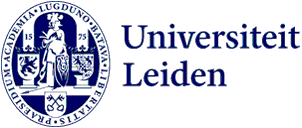
Thed van Leeuwen new professor by special appointment for Monitoring Open Science Policies and Practices
As of 1 September 2024, Thed van Leeuwen is professor by special appointment of the chair “Monitoring Open Science Policies and Practices” at the Centre for Science and Technology Studies (CWTS) at Leiden University. The mission of the chair will be to understand the changes in policies and practices relating to Open Science and to develop new ways of monitoring the transition towards Open Science. The new chair has been established by the Leiden University Fund.
First of all, congratulations on your appointment! Could you tell us a bit more about the new special chair on ‘Monitoring Open Science Policies and Practices’?
"Thanks, I feel really honoured to be appointed to that new position. During the COVID-19 pandemic, the Open Science Working Group at Leiden University created a set of recommendations on Open Science. Later on, the Academia in Motion programme was initiated to put Open Science and Recognition & Rewards into practice. Here is where the new chair comes in: it will support these initiatives by studying the development of Open Science practices and policies and in that way, provide evidence for future policies. As you can imagine, CWTS with its background and expertise in studying the science system is in a very good position to host such a chair."

You have been active in Open Science for many years. What stands out for you?
"Over the last 10 years, I have been involved in research and interventions on open scholarly publishing, more commonly referred to as Open Access. Great progress has been made in this area, with a high share of Dutch publications being openly available although we have to realise that Open Access was the low hanging fruit, the really great challenges are still waiting ahead of us. The Open Science movement is about a cultural change in academia, and such changes tend to take quite some time, but also require lots of investments, of both commitment and financial resources. In particular the relationship with the Recognition & Rewards programme created here at Leiden University adds the necessary incentives for the Open Science development."
"The Open Science movement is about a cultural change in academia, and such changes tend to take quite some time"
The new chair will focus on monitoring Open Science policies and practices. What does this include?
"An important part of the research will consist of relating the implemented Open Science policies to practices, in order to see how effective certain policies have been and what was perhaps hindering an effective implementation. An example could be disciplinary differences requiring specific conditions. But we will also look into practices that work and report on these practices, even before policy making is aware of such developments. The team of the Open Science Lab is also aiming at supporting Open Science developments practically, wherever needed. An example could be to lead an Open Science NL funded workshop on the diversity of monitoring strategies of Open Science at Dutch universities."
How will the new chair connect to other activities at Leiden University?
"The specific position of CWTS, as a centre of expertise in science studies, does provide the opportunities to work intensively together with other actors and teams within the university, and to successfully contribute to the development of Open Science at Leiden University. Obvious partners are the Library, as well as the Centre for Digital Scholarship (CDS), but also the different Faculty Academia in Motion teams across Leiden University. Within CWTS, Open Science is an important element in our Focal Areas, to which we will also contribute wherever needed and possible."
What will change for you in this new position?
"First of all, the chair and the research programme on Open Science resulted in having a team of colleagues around me that also do research on Open Science. With Louise Bezuidenhout, Ana Parrón, and Andrew Hoffman, we have a great team that is really well equipped to do research and support on various Open Science developments. For me personally, the main change means the responsibility of co-supervising a PhD candidate, and getting new perspectives in this process."
The new chair will study Open Science practices at Leiden University. How do you plan to connect insights from that to Open Science more generally?
"What I aim for, of course, is to be able to share the outcomes of our research and our activities so that others can learn from what we have initiated at Leiden University. Personally, I am involved in a project initiated by Universities of the Netherlands (UNL) to create a workflow for more advanced monitoring of Open Access publishing at Dutch universities. I am also a member of the Open Science NL Advisory Panel on Scholarly Communication. In that function, I am a bit of a bridge between the various Open Science initiatives and teams and Leiden University, to let others learn from us and to learn from them."
